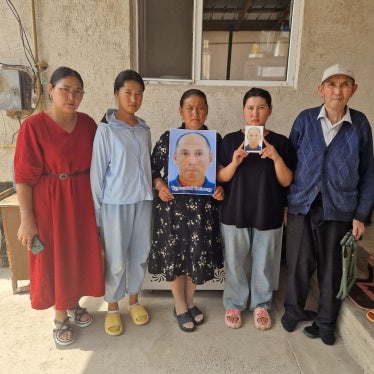There will be elections on Sunday in Yerevan, Armenia's capital. The poll will be the first test of Armenian democracy since the February 2008 presidential election, which was marred by irregularities and culminated in a violent confrontation between the authorities and the opposition. With a tight contest and political polarization, risks are high for post-election protests this weekend. The Armenian authorities' response should not repeat last year's excessive violence.
Sunday's election is for the Yerevan city council (or Council of Elders) but the stakes are high for all of Armenia. With nearly half of Armenia's some 3 million population in Yerevan, the mayoral contest is the fight for one of the country's most visible political positions. If a political party gets more than half the vote, it will select the mayor. Otherwise, the council will make the selection.
The race will be hotly contested. Among those seeking seats in the Council of Elders on Sunday is the opposition Armenian National Congress, a coalition of some 18 political parties and groups led by former President Levon Ter Petrossian, who came second in the disputed 2008 vote and was a major figure in the protests that followed. There are also candidates from the three main parties of the ruling coalition: the Republican Party of Armenia, Prosperous Armenia, and Country of Law. The Armenian Revolutionary Federation ["Dashnakstutiun"], which recently withdrew from the governing coalition and two other smaller political parties are also running for the municipality seats.
The stakes are high because electoral politics in Armenia since independence has remained stuck in a cycle of uneven contests, fraud, and disputes that more often than not spill onto the streets. There is little public confidence in the way elections are run and widespread cynicism about their outcome. To the extent that real political competition exists, it is volatile, with a permanent risk of violence. Mutual respect among electoral competitors-especially between victors and losers-is lacking.
Last year's presidential vote was an acute illustration of this. The dispute between the government and opposition over the results led to several weeks of street protests that culminated in a March 1 clash between police and the opposition in Yerevan. At least eight protesters and two police officers died and scores were injured. While in some instances, the use of force-such asin response to a small group of violent protestors- may have been legitimate, in many others it was excessive.
The government has assiduously prosecuted opposition leaders and supporters for violence on that day, but has failed to hold the security forces accountable with the same rigor. The consequence of the skewed accountability has been a climate of impunity for police violence and a further ebbing of public confidence in law enforcement.
It also led to unresolved political tensions and the sharp polarization of Armenia's political landscape. But with the municipal elections this Sunday, the Armenian authorities have another chance to reconcile the nation's political divide.
The authorities should ensure a free and fair vote, prevent violence against local political and independent observers and conduct swift and effective investigations into any allegations of electoral fraud or violence. They should also make a public commitment to full accountability for what happened last year. Only full accountability for past abuses can break the cycle of impunity and restore public confidence.
Giorgi Gogia is Caucasus researcher at Human Rights Watch.








